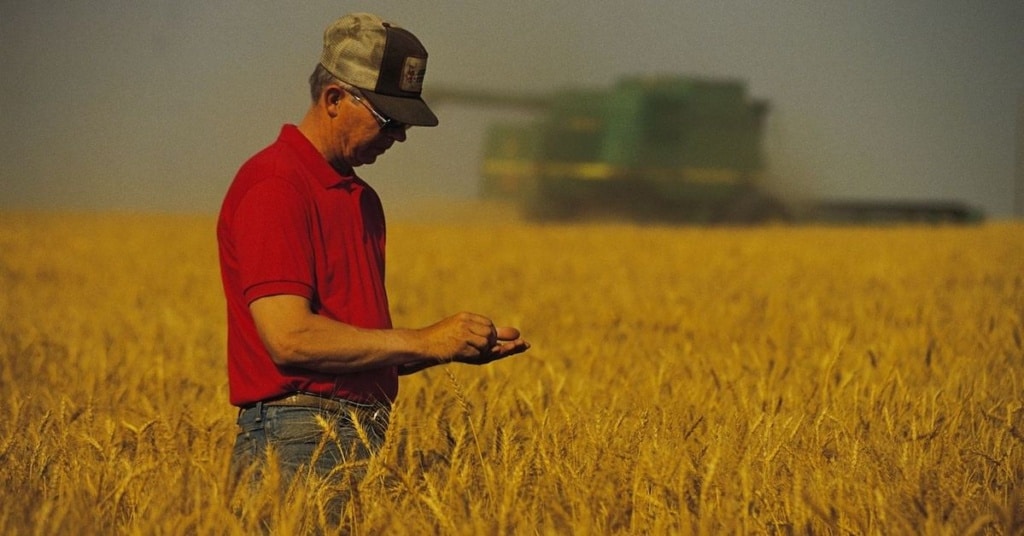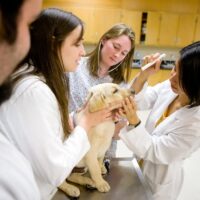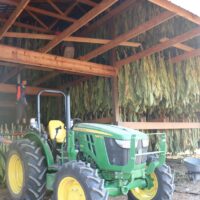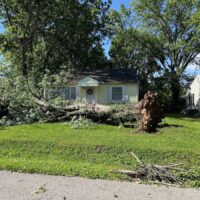Kentucky is investing in efforts to prevent farmer suicide, including a program to teach people in farming communities how to recognize warning signs of suicide and how to head it off; expanding the state’s suicide-prevention call center; funding to collect more data; and an initiative that asks people to reach out to someone if they are feeling “down-and-out, lonesome or blue.”
National Suicide Prevention Day is Wednesday, Sept. 22.
Dale Dobson, farm and home safety program administrator with the Kentucky Department of Agriculture, told legislators at the Sept. 16 Tobacco Settlement Agreement Fund Oversight Committee about the “challenge coin initiative” that he said was instigated by youth who are part of the Dixie Ag Safety Team, located in the Hardin and LaRue counties.
The program involves a handshake, a coin and a pledge made by the person accepting the coin to reach out to someone if they are depressed or have suicidal ideation. Calling the coin an icebreaker, Dobson said he is training young people across the state to share these coins and its message.
Several lawmakers came forward to take the pledge. It was emotional at times, as Dobson shook their hands and said if they accepted the coin, then they would need to give him their word that if they ever felt “down-and-out, lonesome or blue” that they would find a friend or call somebody.

“This is your coin to keep, but not to take to your grave,” he said. “This is how we are going to save lives. One person at a time.”
Another initiative, led by the Southeast Center for Agricultural Health and Injury Prevention in partnership with the state, is a program to provide suicide-prevention training to a diverse group of community members who largely interact with farmers. The trained community members then go back into their communities and train others.
The training is called Agricultural Community QPR, which stands for “question, persuade, refer” and is designed to teach people how to recognize the warning signs of suicide, how to offer hope and how to get help for that person. The agricultural focus of the program involves information specific to the culture of farming as a way to help people understand the stressors unique to farmers and their families and provides customized resources.
University of Kentucky professor Joan Mazur, deputy director of the center, explained some of the many stressors that come with farming, many of them involving “the unpredictability of multiple factors.”
“The unpredictability of the weather, the unpredictability of the crop yields, the unpredictability of the markets, financial losses that can accrue. … The whole idea of loss is it’s very prominent, you know, in causing depression and just hopelessness,” she said.
Mazur stressed how important it is for people who work with farmers’ finances, like those at Farm Credit, to take QPR training because they are often the first outsiders to know that a farm is in financial trouble.
The initial phase of the program supported the training for 17 trainers, who went on to train 415 others from last fall to March 2021, said Carolyn Oldham, who is director of continuing education for the Central Appalachian Regional Education and Research Center and works with Mazur. She said the trainings took place across the nation and in Kentucky.
More recently, she said state appropriations have allowed 40 more Kentuckians to get trained and that this cohort has already initiated 300 more trainings. “And they are just getting started, she said.
In addition to the trainings, the latest state appropriations will be used to train more QPR trainers and to develop a peer-to-peer mobile app for farmers, said Mazur.
Kentucky appropriated $500,000 in each of the last two budgets from its Tobacco Settlement Fund for a mental-health and suicide prevention program aimed at farmers.
Mazur praised the support of the agriculture department and the General Assembly. “Not every state enjoys this kind of support from state offices and state legislature,” she said. “So I think it’s unique and I think it’s very forward thinking and a real tribute to a legislature that understands they are representing a largely rural state.”
Dave Morris, the deputy executive director of marketing for the department, told the oversight committee that the state has received a $500,000 grant from the U.S. Department of Agriculture that will be used to supplement the initiative, called “Raising Hope.”
Cheryl Witt, assistant professor at the University of Louisville School of Nursing and the project manager for the pilot, told the lawmakers that the program had prioritized its areas of focus by applying a formula based on the number of farmers in a county, the suicide-attempt and suicide rate, resulting in 56 Kentucky counties being included in the pilot.
Oldham said that talking about suicide is not something most people are comfortable doing and said the QPR training helps with that, noting that a “Willingness to Intervene Survey” that is done both pre- and post-training found that individuals said they were twice as willing to intervene as a result of the program.
One of the many trainers is Kristie Guffey, an assistant professor and a graduate coordinator for the Hutson School of Agriculture atMurray State University.
Guffey said she was first asked to be part of this training to bring the program to the western part of the state, but it has since become something she is “called to do” after the March suicide of a “very prominent farmer” that she had known for more than 20 years and her families experience with a nephew who is a suicide survivor.
“In our farm communities, we have to do something,” she said. “We have to step up and we have to speak up and we’ve got to talk about a topic that no one wants to talk about. And if we don’t rip the band aid off, then we’re going to continue to visit funeral homes throughout the commonwealth and throughout our farming communities. … It’s a stigma that we don’t want to talk about, but if we don’t talk about it, nothing will ever change.”
Guffey said she had received a “phenomenal” response from this grassroots effort from her trainees, many of whom said that before the training they thought they couldn’t talk to people about suicide because it might give them the idea to do so. She said research has proven that this is not true.
“My message of hope is pretty much that I want individuals to take this seriously,” she said. “I want them to understand that they don’t have to be a licensed practitioner and they do not have to be a board certified counselor or anything like that, all they have to be is a concerned friend that wants to help them through a tough time and so everybody can do that.”
Melissa Patrick is a reporter for Kentucky Health News, an independent news service of the Institute for Rural Journalism and Community Issues, based in the School of Journalism and Media at the University of Kentucky, with support from the Foundation for a Healthy Kentucky. She has received several competitive fellowships, including the 2016-17 Nursing and Health Care Workforce Media Fellow of the Center for Health, Media & Policy, which allowed her to focus on and write about nursing workforce issues in Kentucky; and the year-long Association of Health Care Journalists 2017-18 Regional Health Journalism Program fellowship. She is a former registered nurse and holds degrees in journalism and community leadership and development from UK.






